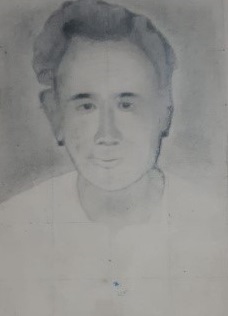People and Personalities of Baksa District
People and Personalities of Baksa District
 Sastiram Deka was born into a humble tribal family, facing the hardship of losing his parents at a tender age. Despite the challenges, he exhibited tremendous diligence and resilience, sustaining himself through agriculture. Embracing the ideals of the Indian National Congress, Sastiram Deka became an ardent volunteer. Inspired by Mahatma Gandhi's philosophy of nonviolence, he actively participated in various initiatives aimed at achieving independence. These endeavours included picketing, boycotting foreign goods, combating the spread of opium, promoting Khadi, and popularizing spinning and weaving.
Sastiram Deka was born into a humble tribal family, facing the hardship of losing his parents at a tender age. Despite the challenges, he exhibited tremendous diligence and resilience, sustaining himself through agriculture. Embracing the ideals of the Indian National Congress, Sastiram Deka became an ardent volunteer. Inspired by Mahatma Gandhi's philosophy of nonviolence, he actively participated in various initiatives aimed at achieving independence. These endeavours included picketing, boycotting foreign goods, combating the spread of opium, promoting Khadi, and popularizing spinning and weaving.
During the Civil Disobedience Movement in 1930, initiated by Gandhi to challenge the British Salt Law, Sastiram Deka fervently engaged in acts of Civil Disobedience. As a consequence, he was arrested and imprisoned in Jorhat. In 1942, he joined the Santi Sena Bahini, a peaceful army, and actively participated in anti-British activities. His involvement included providing shelter to underground leaders and clandestinely acting as a messenger for fellow volunteers. The government, wary of their activities, deployed an armed police platoon to monitor the area. He unwaveringly believed in Gandhi's principles and adhered to a lifestyle centered around Khadi clothing until his last breath.
After independence, his instrumental role was in establishing the local peasants' association known as Betna Shiksha and Krishak Unnayan Sangha (Betna Education and Peasants' Development Association) in 1958. The government of Assam bestowed upon him a copper plate as a symbol of honour in 1997. Additionally, Sastiram Deka received a freedom fighter's pension, acknowledging his active involvement in the struggle for independence.
Source :
- Dr. Binita Das, Contributor for CCRT
- Azadi Ka Amrit Mahotsav
Last Modified : 8/28/2024
This topic provides information about People and P...
This topic provides information about People and P...
Provides information related to People and Person...
Provides information related to People and Persona...
